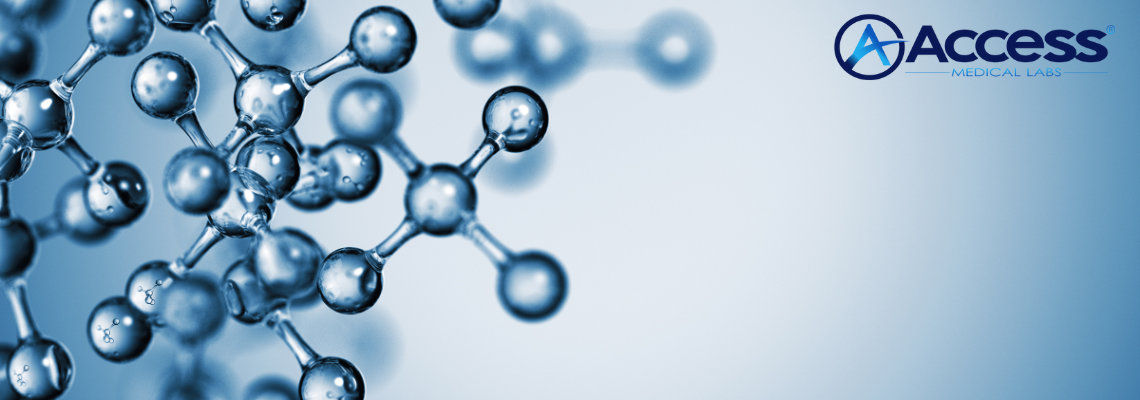
The Future of Health: Near-Infrared Tech and Molecular Hydrogen Tools
- September 1, 2023
Preventative care and whole-body health is taking center stage for many medical professionals. According to the widely-used total load theory, patients suffer under several small stressors that contribute to larger systemic collapses, like the unexplained development of chronic conditions. Though these loads may not be enough to noticeably damage your patients’ health on their own, together, they wear down the body’s defenses to a breaking point. As this theory has taken hold, healthcare practitioners have been developing comprehensive approaches that address several small stressors at once to alleviate symptoms and promote long-term wellness.
These comprehensive approaches have resulted in several promising new therapies for the prevention and management of several diseases. Among these, infrared photobiomodulation and molecular hydrogen medical gas treatments are making their mark as revolutionary methods for preventative care and treatment.
Infrared Photobiomodulation
Infrared photobiomodulation (PBM), also called low-level light therapy, is known for its ability to promote whole-body health. As a holistic treatment with few potential negative side effects, PBM is a popular form of preventative care. PBM aims to recreate the infrared effects of the sun. Effective light treatment should match peak solar irradiance, which is about 49 milliwatts per centimeter squared. As PBM has a hormetic effect, correct dosage is vital.
When done correctly, PBM has a variety of benefits, including:
Mitochondrial Repair
Perhaps the most publicized effect of PBM is its effect on mitochondrial health. Increasingly, age-related disorders have been linked to mitochondrial damage; PBM’s ability to increase mitochondrial repair, as well as promote mitochondrial activity, makes it a remarkable preventative treatment. When using near-infrared light, PBM increases nitric oxide and adenosine triphosphate, which enhances cell activity and repair. Particularly in the context of wound repair and cellular regeneration, this effect has been widely recognized. In one study, photobiomodulation was shown to promote mitochondrial health, increase ATP production, and alleviate symptoms related to a spinal cord injury.
Neuroprotective Effects
Photobiomodulation has also been used to manage several neurological conditions; it’s even shown significant promise for the management of epilepsy. In one experiment, mice that underwent PBM therapy as little as ten minutes every day for seven days showed a neuroprotective effect against the neurotoxin amyloid β 25-35. This evidence indicates that PBM may be an effective protection against Alzheimer’s and similar neurodegenerative diseases.
Microcirculation and Heart Health
Overall, photobiomodulation is shown to have a positive effect on heart health. For example, far-infrared saunas have been successfully used as an alternative to moderate exercise for those with osteoarthritis or cardiovascular respiratory problems, with similar therapeutic effects.
Since the microcirculation can be difficult or impossible to operate on in the case of a life-threatening blockage, effective care for microcirculation has become a major concern for healthcare practitioners. Photobiomodulation has been shown to have an overall positive effect on heart health—including, remarkably, the microcirculation. PBM induces arteriolar vasodilation, improving blood flow through the microcirculation. Along with additional preventative care, PBM can promote healthy microcirculation, reducing the likelihood of heart attacks and strokes.
Molecular Hydrogen Medical Gas Therapy
Like photobiomodulation, medical gas therapy is a holistic approach to the prevention, management, and treatment of several diseases. Cellular, lung, heart, and brain health have all shown significant improvement with medical gas therapy. In particular, molecular hydrogen has been highlighted for its unique protective effect. Since hydrogen molecules are particularly small, they’re able to easily penetrate cell membranes, maximizing its efficacy in treatment and prevention.
Cell health. Molecular hydrogen has shown promising potential for boosting cellular health. At a cellular level, molecular hydrogen treatments reduce oxidative stress. Molecular hydrogen is also popular for reducing inflammation, as it can significantly increase mitochondrial ATP production, maximizing cell energy availability.
Lungs. For those with weak lungs, molecular hydrogen therapy may significantly strengthen lung capacity, all while protecting from a variety of respiratory diseases. According to one review, molecular hydrogen treatment may protect and strengthen the lungs from conditions such as asthma, lung cancer, and pulmonary fibrosis.
Heart. As with almost every treatment that reduces oxidative stress and inflammation, molecular hydrogen treatment is highly effective in the cardiovascular system. It’s even shown significant potential as a form of protection against cardiac ischemia-reperfusion injury.
Brain. Molecular hydrogen also shows unique promise for the treatment and management of cognitive decline and neurological conditions, including Parkinson’s. By gaseous diffusion, molecular hydrogen is able to easily pass the blood-brain barrier. Then, it helps the mind through two major pathways; first, through its alleviation of oxidative and inflammatory stress, and, second, by improving the plasticity of neuronal synapses.
Premium Testing for Next-Level Treatment
To ensure the efficacy of photobiomodulation and molecular hydrogen therapy, consistent testing is key. As both of these treatments have widespread effects, holistic healthcare practitioners need testing that measures several relevant markers with reliable results.
Access Medical Labs offers panels with in-depth information you need to provide the best patient care. From our CardioPro panels to our WellnessHealth screens, our selection of health markers is ideal for developing a complete picture of your patient’s health and wellness during PBM and molecular hydrogen therapy. Our commitment to quick turnaround times, combined with the customizability of all of our panels, make us an excellent choice for both short-term and long-term treatments. Explore more from Access Medical Labs.
More About Dr. Ghen

Mitchell Ghen, DO, Ph.D. has 33 years of experience in Anti-Aging and holistic and integrative medicine. Along with his work in nutritional medicine, “Dr. Mitch” has a remarkable amount of experience as an expert clinician and researcher in the field of stem cell transplantation.
In addition to being a physician, Dr. Mitch holds a Master’s Degree in Biomechanical Trauma and has a Ph.D. in nutrition and psychoneuroimmunology. He is an international lecturer on oral and IV nutrition and stem cell transplantation and is recognized as one of the premier teachers at conferences and seminars on integrative medicine. His private practice is in Boca Raton, Florida.
Dr. Mitch’s vast academic knowledge, coupled with his entertaining delivery, makes him one of the most sought after personalities in his field. Currently, he is a medical director for several Natural Medicine companies and a consultant for physicians worldwide, teaching them how to implement integrative medicine into their practices.
He is the co-author of four textbooks including the “Advance Guide to Longevity Medicine,” “The Ghen and Raine’s Guide to Compounding Pharmaceuticals,” “The Anti-Aging Physicians’ Handbook for Compounding Pharmaceuticals,” and “The Essentials and Science of IV Parenteral Medicine.”